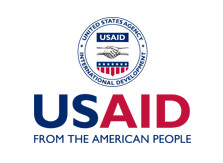|

A student, Habibatu Musa, recalls family planning messages during the last Ramadan Tafsir (Muslim fasting season) |
Success Story
Unreceptive Muslim Religious Leaders Promote and Practice Family Planning in Nasarawa State
Nasarawa State, Northern Nigeria, January 2008
In Nigeria, several northern Muslim religious leaders are still less favorably disposed toward family planning and advise against contraception despite high-level campaigns promoting the benefits of family planning. With a high fertility rate of 5.8% and an annual population growth of 2.8%, the country remains the most populous nation in Africa at over 140 million. This has dire implications on the already stretched public infrastructure and services. Health facilities in the country's vast rural areas are scarce and frequently understaffed and undersupplied. Where services do exist, cultural and social pressures limit women's ability to use them, especially in conservative communities like Unguwa Waje, a rural community located in Keffi Local Government Area in Nasarawa State.
The peasant farmers and traders who reside here are devout Muslims who reject family planning because of the belief that Islamic tenets forbid family planning, which they've been told can lead to infertility or even death. Recognizing that religious leaders are respected members of the community and potential proponents and advocates of family planning, the COMPASS Project conducted a workshop for thirty Muslim religious leaders in the state on the appropriateness of contraceptive use. The objective of the training was to dispel myths about family planning, improve their perspectives toward contraception, and motivate them to advocate publicly for family planning. The workshop adopted a document authored by the Federation of Muslim Women's Associations of Nigeria (FOMWAN), a COMPASS Partner, and involved the Association's state chapter.
|
“A recent study by MEASURE Evaluation revealed a dramatic increase in contraceptive use from 7.8% to 20% in Nasarawa State and an overall increase from 9% to 25% in COMPASS-supported LGAs in the five states between 2005 and 2007." |
Expectedly, there was some resentment during the workshop. “At first, the religious leaders did not share the perspective at all”, according to COMPASS State Reproductive Health Coordinator, Kubra Ahmed. Affirming this position, one of the scholars, Nasiru Muhammed Auwal, said, “I did not think Islam supported family planning and had to make further research after the orientation”. Commending the collaboration with FOMWAN, another participant, Khalid Idris Bala, said, “FOMWAN's involvement helped clarify the views.” The workshop also guided participants in developing action plans which included the dissemination of family planning messages during Islamic lectures and to other colleagues.
Nasiru, whose wives adopted modern family planning methods following the workshop, described how the new-found knowledge helped him resolve a conflict between a husband and his two wives who were students in his class. He not only disseminates messages to women during lectures, but to men in the community as well. In a lecture during the 2007 Ramadan Tafsir (Islamic fasting season), students in Nasir's class shared their new knowledge and expressed what a difference it had made in their lives. One student, twenty-one-year-old Khadijat Abigide, though unmarried, expressed her delight about the timely information. “I now educate my friends about the importance of using health and education services. With this new knowledge, I am equipped to make informed choices when I am ready”, she said.
Mallama Aisha Ibrahim Idrama, a popular female scholar in the area, includes messages on family planning to her over 400 student population during the Tafsir. Twenty-five-year-old Fadimatu Suleiman, a student and mother of six, recently adopted a family planning method and is happy about her ability to make the choice in consultation with her husband. According to Fadimatu, “We went together to the facility and after some counseling, decided against more children for now.”
Through increased support from religious leaders, as well as training service providers on family planning and interpersonal communication skills, support for community-led advocacy and awareness campaigns, and a recent collaboration with ACQUIRE/EngenderHealth that promotes men as partners to increase the use of family planning services, the COMPASS Project has continued to contribute to increased use of contraceptives. A recent study by MEASURE Evaluation revealed a dramatic increase in contraceptive use from 7.8% to 20% in Nasarawa State and an overall increase from 9% to 25% in COMPASS-supported LGAs in the five states between 2005 and 2007.
COMPASS sees communities as experts and assets in identifying and addressing their priority health and education issues and provides them with the appropriate information, skills and platform to take action. COMPASS is an integrated health and education project funded by the United States Agency for International Development (USAID) and works in Kano, Bauchi, Nasarawa and Lagos States, and the Federal Capital Territory.
|
